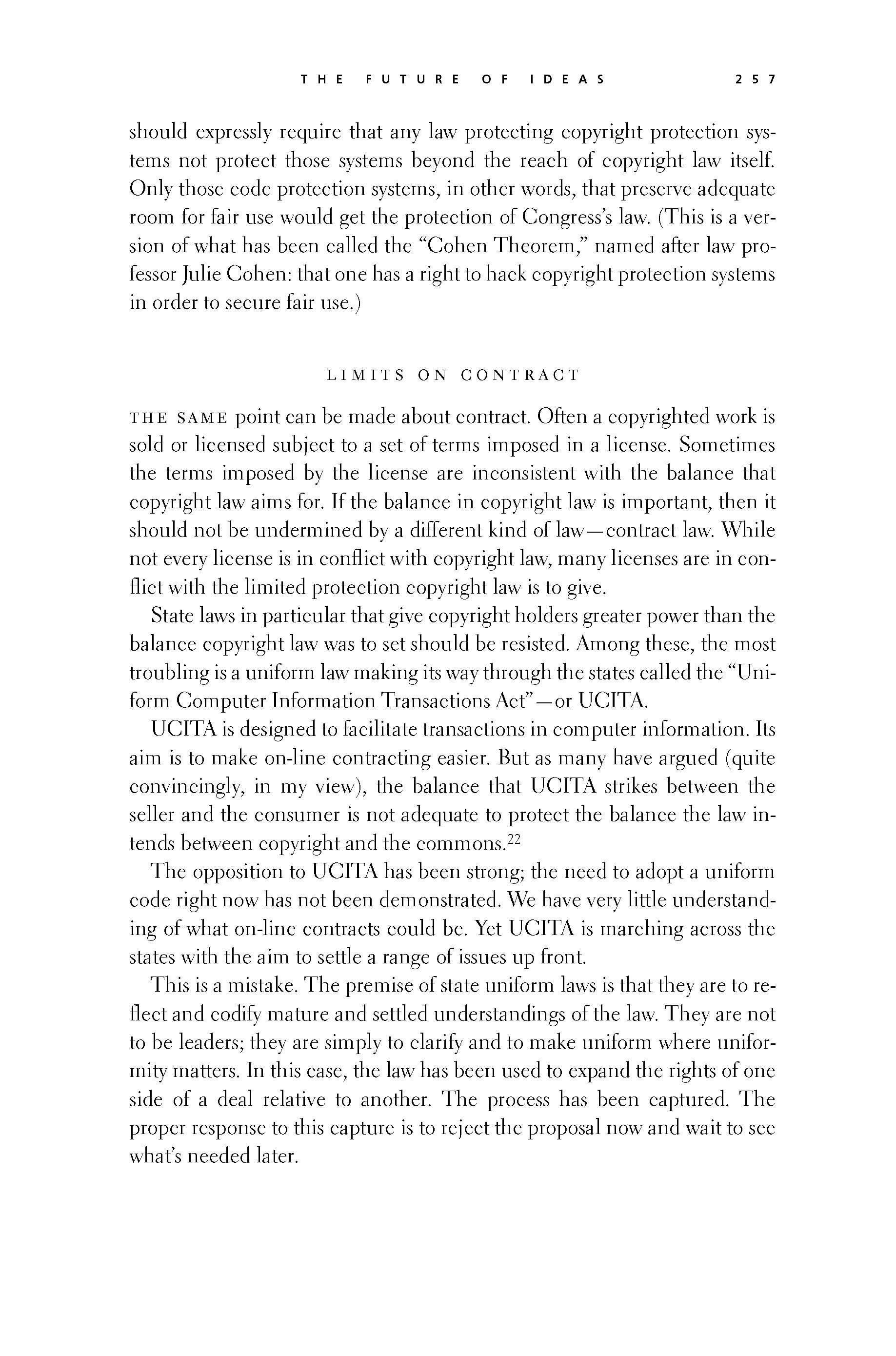 p256 _
-chap- _
toc-1 _
p257w _
toc-2 _
+chap+ _
p258
p256 _
-chap- _
toc-1 _
p257w _
toc-2 _
+chap+ _
p258
should expressly require that any law protecting copyright protection sys-
tems not protect those systems beyond the reach of copyright law itself.
Only those code protection systems, in other words, that preserve adequate
room for fair use would get the protection of Congress's law. (This is a ver-
sion of what has been called the "Cohen Theorem," named after law pro-
fessor Julie Cohen: that one has a right to hack copyright protection systems
in order to secure fair use.)
/tab\/tab\LIMITS ON CONTRACT/tab\/tab\
The same point can be made about contract. Often a copyrighted work is
sold or licensed subject to a set of terms imposed in a license. Sometimes
the terms imposed by the license are inconsistent with the balance that
copyright law aims for. If the balance in copyright law is important, then it
should not be undermined by a different kind of law -- contract law. While
not every license is in conflict with copyright law, many licenses are in con-
flict with the limited protection copyright law is to give.
State laws in particular that give copyright holders greater power than the
balance copyright law was to set should be resisted. Among these, the most
troubling is a uniform law making its way through the states called the "Uni-
form Computer Information Transactions Act" -- or UCITA.
UCITA is designed to facilitate transactions in computer information. Its
aim is to make on-line contracting easier. But as many have argued (quite
convincingly, in my view), the balance that UCITA strikes between the
seller and the consumer is not adequate to protect the balance the law in-
tends between copyright and the commons.[14-22]
The opposition to UCITA has been strong; the need to adopt a uniform
code right now has not been demonstrated. We have very little understand-
ing of what on-line contracts could be. Yet UCITA is marching across the
states with the aim to settle a range of issues up front.
This is a mistake. The premise of state uniform laws is that they are to re-
flect and codify mature and settled understandings of the law. They are not
to be leaders; they are simply to clarify and to make uniform where unifor-
mity matters. In this case, the law has been used to expand the rights of one
side of a deal relative to another. The process has been captured. The
proper response to this capture is to reject the proposal now and wait to see
what's needed later.
[[257]]
p256 _
-chap- _
toc-1 _
p257w _
toc-2 _
+chap+ _
p258